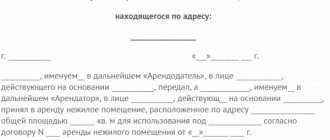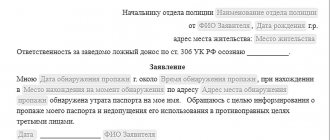The desire to transfer accumulated personal property to a worthy person is completely justified. Failure to obtain a certified document upon the death of the owner will result in a statutory division in the order of priority. A will prepared in advance specifies:
- circle of people who will receive the inheritance (close relatives, friends, organizations and companies);
- list of property (real estate, transport, securities);
- share of included applicants.
The requirements for a testator are minimal. Restrictions are established for people declared incompetent and minors . The standard procedure is divided into stages.
- The testator comes to the office or calls the notary at home.
- The last will is stated in advance or in the office after clarification of legislative norms.
- In addition to the testator, the document can be signed by the executor.
- An authorized person affixes signature and seal.
The testator will definitely need to prepare his passport. You will not have to present title documentation and heirs’ passports. It is allowed to draw up several declarations of will for the division of property and heirs.
Making a will without the participation of a notary
Using a standard certification procedure is problematic when emergency situations arise. It is stipulated that it is possible to draw up a will without a notary in case of unforeseen circumstances ( Article 1129 of the Civil Code ). These include:
Free legal consultation
+8 800 100-61-94
- absence of a notary near your place of residence;
- the emergence of a threat to life;
- restrictions due to physical ailments;
- decision to bequeath a bank deposit.
The legislation allows the testator to contact persons holding leadership positions . The situation dictates a change in conditions, otherwise it is impossible to express one’s will. To write a will without a notary, certain requirements :
- the responsible person signs;
- witnesses are present depending on the circumstances;
- further transfer takes place for certification (notary, notary chamber).
Important! The text must be prepared in typewritten form or written by hand. The last option is required for a closed form document. Notarization occurs later in the presence of witnesses. It will be possible to find out the contents in the event of a change in the will or death of the testator.
✅ Documents
The will must contain accurate information about the heirs and inherited objects, therefore the procedure for registering a will is impossible without certain documents:
- Passport of the testator;
- Passports (copies of passports) of heirs;
- Title and registration documents for real estate and other property.
If the testator is already elderly, additional documents may be required. For example, some notaries ask to submit a certificate of mental health for people over 50 years of age - it will reduce, if not completely eliminate, the risk of challenging the will due to the incapacity or insanity of the testator.
Documentation content requirements
The disposition of acquired property places demands on the testator. A will without a notary should:
- indicate recipients and unworthy heirs;
- list objects of inheritance;
- divide property into shares without infringing on the rights of persons from the first priority;
- establish the conditions of transfer and deprivation (by law);
- set tasks and give recommendations for implementation.
Attention! Finally, a note is made about the writing method. If it is not possible to prepare the document personally (physical ailments, illiteracy), a hand-applying person is selected. In this capacity there is an independent person who does not claim inheritance.
When is it time to think about real estate heirs?
A will is a document that must be executed by a legally capable person; it guarantees the subject that after his death, the property will be distributed according to his will. In general, wills can only be written from the age of 18 , because that is when legal capacity begins. But there were cases when this age was reduced to 16, because the subject earned his own living and did not depend on others. Restrictions are imposed not only up to a certain age, but also on persons who are alcohol or drug addicts. People who have had or are experiencing mental disorders are also limited in their actions.
Thus, any mentally healthy person, without addiction, who provides for himself and has some property at his disposal, can draw up and think about a will document.
Basic provisions
Before drawing up a document, it is advisable to contact a lawyer. It is necessary to find out changes in the legislative framework and include the necessary provisions in the will. Usually this responsibility is assigned to the notary.
- Two copies are prepared at the same time.
- There is a name, number and place of registration.
- The last name, first name and patronymic of the testator are indicated in full along with passport data (time of issue, registration address).
- Information about heirs is presented similarly.
- There is information from title documents.
- The number of copies, personal compilation and method of storage are reported.
- Below are the signatures of the testator and two witnesses.
Important! Handwritten text has priority, since it is possible to conduct a handwriting examination. Witnesses will be able to confirm the independent drafting and good will of the testator.
A testamentary disposition will help distribute funds in bank accounts. Use a regular form or a special form from a financial institution. There are no special differences compared to a typical will. Indicate data on deposits and the size of the share as a percentage.
Additionally, there is a position, as well as the name of the bank employee. They put down the filling number, signatures (testator and manager), and seal. Notarization is not required.
When can you use your inheritance?
In addition to the fact that we have discussed all the nuances of drawing up this document, we must also remember that there are many legal pitfalls that you should pay attention to.
After the death of the testator has occurred and the will has been promulgated, it can be used within 6 months, or appealed against within the same period. So, during this period, an heir who does not agree with the will can go to any court and appeal it. This deadline is made so that everyone who does not agree with the will can fully familiarize themselves with it and appeal.
Also at this time, you can discuss issues that interest you, find a compromise, and eliminate all disagreements. Only after this period, the heirs have the right to be the full owners of the property. Therefore, be careful when choosing between a will and a deed of gift. At a minimum, you will need another six months to challenge everyone claiming your living space.
Who can replace a notary
Depending on the time of preparation and conditions, other persons may be able to provide notary services. The list is also present in the code ( p. 1125, 1127, 1128 Civil Code ).
| Conditions | Responsible person |
| Long-term treatment in a medical facility | Chief or duty doctor |
| Long voyage | Ship captain |
| Military service | Commander or senior rank |
| Expeditionary work | Head of the base or expedition |
| Serving a sentence | Head of the institution of the Federal Penitentiary Service |
| Living in a nursing home | Director or doctor |
| Lack of notary offices | Head of local government |
| Long-term residence abroad | Consul |
Attention! Natural disasters and acts of war lead to the writing of a will in a simple form. Any two witnesses must be present. It is better to re-register a cash deposit at a bank office. An employee of the financial institution can certify the decision.
Special circumstances will not prevent the document from being notarized no later than 30 days after the end of the threat to life. In the event of the death of the testator during this period, a will made by hand without a notary is valid. Without certification, the document loses legal force.
An example of how to make a will without a notary:
✅ Procedure
The testator can contact any notary office, but it is advisable to draw up the will at the place of residence - this will simplify the matter for the heirs.
First of all, the notary establishes the identity and makes sure of the testator’s legal capacity.
Then the text of the will is prepared - it can be handwritten by the testator himself , or it can be dictated to a notary and typed using printing technology. The finished text is carefully read by the testator. If inaccuracies are found or additions are required, amendments are made to the text.
The document is then signed personally by the testator. If the testator is sick or suffers from physical disabilities that do not allow him to sign on his own, he can use the service of a hand applicator (Clause 3 of Article 1125 of the Civil Code of the Russian Federation).
After this, the notary puts a certification inscription, signs and seals the document. Data about the document is entered into a special register. The document is drawn up in two copies: one is given to the testator, the second is kept in the notary’s office.
The testator pays a state fee of 100 rubles for certification of the document and additional notary services (clause 13, clause 1, article 333.24 of the Tax Code of the Russian Federation).
For more information about a will and the procedure for drawing it up, read the article “How to correctly draw up a will for an inheritance.”
Mistakes when drawing up a will yourself
Preparing a will yourself has hidden risks . It is easy to make mistakes due to ignorance of the laws.
- Great importance is attached to the form of the document. Printed text is easier to challenge.
- We must not forget about the allocation of a mandatory share. One of the spouses, parents, children, dependents (first priority) must receive part of the inheritance, despite the reduction in shares.
- The testator can act exclusively as an individual person. The introduction of a spouse's share into the inheritance mass is not prohibited if half of the values of the acquired property is indicated. Exceptions are made for donated and inherited items.
- Content without including some points makes the document void.
- Including cancellation/amendment sections makes it easier to rescind orders and make amendments. Legal force will generally be retained.
Important! Making a will without the presence of a notary does not exempt you from compliance with legal norms and registration rules. It is necessary to take into account the amendments that have been made, to clarify the rights and responsibilities in advance.
How to cancel or make changes
Civil Code in Art. 1130 establishes the rule according to which a will can be revoked or changed at any time. There is no need to provide a reason. There are two ways to change and cancel:
- Drawing up a new will (when written, it directly indicates the cancellation of the old document. If there is no such indication, then the original one is changed in a contradictory part).
- Cancellation order (made in writing; a new order is not drawn up, but the old one is cancelled).
The procedure itself is similar in nature to the preparation of the original document. Notarization required. The amount of the duty and notary fee does not change and is 100 rubles. with additional payment for technical and legal services.
What to bequeath
The testator has the right to bequeath all of his property, including those acquired in the future, or only part of it. He can also distribute the inheritance among successors in any shares and in any order, based solely on personal considerations.
The inheritance can be:
- movable and immovable property;
- land plot;
- stock;
- bank deposits;
- valuables;
- sums of money not paid to the testator during his lifetime;
- enterprise or farm.
Separately, the purpose of testamentary refusal and assignment should be mentioned. In accordance with Articles 1137 and 1139 of the Civil Code, the testator has the opportunity to order that specified persons receive certain material benefits and services from the testator.
The subject of a testamentary refusal is property obligations carried out at the expense of the received inheritance:
- provision of the specified thing for use;
- periodic payment of established amounts of money;
- performing specific work;
- transfer of ownership of one or more objects of inheritance;
- acquisition of certain property for the legatee.
A testamentary assignment may be assigned to the implementation of some generally useful purpose, not necessarily of a property nature, for example, caring for a pet.
The testator has the right to order the appointment of an executor of the will, assigning to him the responsibilities of transferring property to the heirs and monitoring the implementation of the testamentary refusal or assignment.
Advantages and disadvantages of the order
Advantages of a disposal for a minor child or grandchild:
- Undesirable recipients are deprived of their rights to property by law. The exception is for obligatory assignees.
- The owner can set an age limit for receiving property. Therefore, upon reaching a certain age, the child will be provided with money or living space.
- A minor child can be not only a direct heir, but also a sub-heir and legatee.
- A parent or other legal representative cannot dispose of the inheritance of a minor at his own discretion.
Disadvantages of a will for a minor:
- The recipient will be able to register the property only if there is a legal representative. He does not have the right to submit documents to a notary on his own.
- If the deceased has significant debts, the legal representative cannot independently formalize the refusal of the inheritance. The procedure is possible only with the consent of the district guardianship department.
- Real estate registered in the name of a minor cannot be sold in case of relocation or to improve living conditions. The transaction is possible only with the consent of the district guardianship department. In practice, the procedure is quite complex.
- Money that is placed in the child’s account (compensation for a share in the inherited property, money from the deceased’s contribution) cannot be spent. They must be kept on the account until he reaches adulthood. The legal representative can only receive a certain amount for a specific purchase in the interests of the child.
- Possibility of legal challenge. Most often this happens when older people are making orders. The basis for invalidating a will is the inability to understand the consequences of one’s actions. For example, if the testator does not realize the consequences of his own actions due to a long illness.
Amount of state duty
The age of the recipient of the property is not reflected in the amount of the state duty when drawing up the order. Therefore, the testator bears his expenses in full.
Costs for registering the will in 2021:
- A state fee is charged for notarization of a will. Its size is 100 rubles .
- Notary services are paid separately. The amount of payment depends on the region of circulation. For example, in Moscow the testator will pay 2400 rubles, in the Voronezh region 1900 rubles.
Check the amount of expenses on the website of the Federal Notary Chamber. Just select your region in the special line.
Who can be a testator
A will is a unilateral transaction, which by law can only be made:
- the owner of the transferred object (the right must be officially registered at the time of the death of the testator);
- an absolutely sane and adequately thinking person, without signs of mental disorder or drug/alcohol intoxication;
- a fully capable citizen - over 18 years of age, mentally healthy, emancipated (over 16 years of age, working under a contract or engaged in entrepreneurial activity, recognized as such by the guardianship and trusteeship body or the court);
- a minor testator over 14 years of age with the consent of parents/guardians/adoptive parents;
- a citizen with limited legal capacity with the consent of the trustee.
Insure your health
Accident life insurance policies generally do not cover the risk of illness. If disability is assigned as a result of a serious illness, then payment can only be received under the health insurance program.
Such insurance programs are more expensive, because the risk of getting sick is higher than dying. To insure your health for 5,000,000 rubles, you will have to pay from 10,000 to 35,000 rubles per year for the policy.
Special cancer insurance programs allow you to count on support when diagnosing cancer. The conditions of insurance programs may include other critical illnesses, such as heart surgery, organ transplants, any surgical operations, as well as injuries and damages, including burns, fractures, and concussions. Check the lists of such diseases when choosing a policy.
Pros of health insurance:
- payment can be received not only in case of an accident, but also in case of detection of any deadly or serious illness;
- the amount of compensation depends on the severity of the damage, so, in case of disability of the 1st group, the payment will be 100% of the insured amount, and in case of temporary loss of ability to work, for example, due to a broken arm - about 10–15%;
- compensation is issued immediately after diagnosis and confirmation of the disease, the money can be used for treatment and rehabilitation;
- if treatment does not help, the insurance payment will go to financial support for the family in the event of the patient’s death.
The cost of insurance will be higher if you are over 45 years old and have chronic diseases.
In some cases, it is necessary to undergo regular medical examinations at a partner clinic in order for the insurance company to formalize an agreement with the client. More often, the policy is sold without a medical certificate, and this threatens with refusal of payments if the client, for example, does not indicate all his illnesses in the questionnaire, violating the terms of the contract.
They also do not issue compensation if the insured did not take the necessary precautions, but went to an exotic country without vaccinations, drove without a license, or did not seek medical help in time after a dog bite.
Take out an endowment life insurance policy
Endowment life insurance (CI) programs are like a reserve fund from which money is paid in different situations.
You can take out a policy either in your own name or in your child’s name. Compensation under the NJ policy is paid after the death of the breadwinner - a minor will be able to receive payment through his legal representatives in just a few weeks. Guardians can receive the money themselves, but they have the right to spend it only on the needs of the children.
For an insurance policy, insurance premiums are paid in installments, once a year. If you miss paying the premium, the policy will be cancelled. Premiums accumulate in the account; when the policy expires, they are returned. This is how the cumulative effect of this insurance works.
Also, some programs allow you to keep your savings even if you cannot continue making contributions, for example, due to disability. Then the insurance company will pay everything for the client, and at the end of the term will give the entire amount of compensation in hand.
Advantages of the NJ policy:
- works like a piggy bank - insurance premiums accumulate over several years;
- protection applies in the event of an inability to pay premiums - in the event of loss of ability to work or death for a parent, the remaining contributions will be made by the insurance company, and at the end of the term will be given the entire amount due to the child;
- the opportunity to accumulate start-up capital for key goals for your child - for their 18th birthday, admission to a university, wedding;
- financial support in the event of the tragic death of an insured parent, for example, increased payment in the event of an accident.
But the policy will not help if the parent stops regularly making contributions for any reason other than becoming disabled. For example, you can pay contributions under the NSZh program for 4 years, but if you miss the payment deadline in the fifth year, the policy will simply become invalid. It will be possible to return the accumulated money, but with a certain discount - the insurer will keep 5–20% of the contributions made.
I thought about financial protection for my daughter and opened a savings life insurance program. The daughter’s father also opened an insurance program in her favor. According to the program, the life of the parents is insured in favor of the child.
And there is an important point - according to the terms of the program, in the worst case scenario - the death of the parents - the child will receive money at 18 years old, and until his 18th birthday, the insurance company will pay the premiums. Now I feel calm and know that no matter what happens, at the age of 18 my daughter will receive at least 1.5 million rubles (this does not take into account investment income, on average about 4-5% per year).
The program provides additional lump sum payments in the event of the death of parents from an accident. As well as payments in the event of a fatal illness in a child or parent.
An example of how the program I have open works. If a parent passes away as a result of an accident, the payment will be 100% of the insured amount + income to the child when he turns 18, as well as 100% of the insured amount to the child’s guardian within 14 days after providing documents about the accident.
I selected the insurance program taking into account my goals (accumulation on time, protection from illness), financial capabilities - I pay an annual premium for 12 years, so it should be comfortable for my budget, as well as the reliability of the insurance company.
Endowment life insurance on Sravni.ru
Choose the best program option








